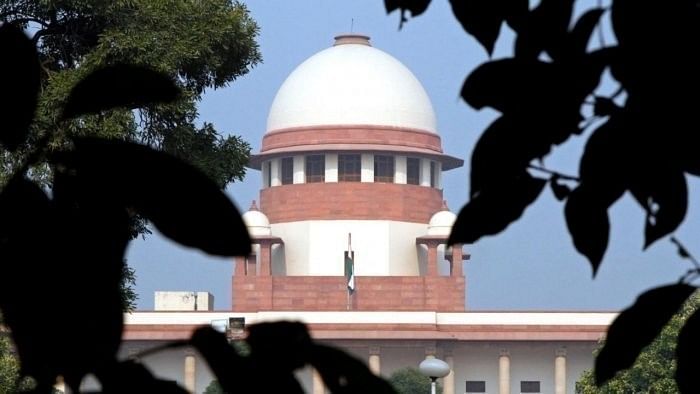
The Supreme Court of India.
Credit: PTI File Photo
New Delhi: In a big boost to financial health of mineral rich States, the Supreme Court on Wednesday allowed them to collect royalty and tax dues from the Centre and mining lease holders on mineral bearing land since April 1, 2005.
A bench led by Chief Justice of India D Y Chandrachud, however, said such dues can be collected from April 1, 2026 in installments in 12 years.
The apex court also clarified States cannot impose penalty or levy interest on past tax demands.
"A pragmatic solution to reconcile the financial interests of the States and the assesses can be achieved by proscribing the States from demanding taxes pertaining to Entries 49 and 50 of List II of the Seventh Schedule for the period before the Constitution bench decision in State of West Bengal v. Kesoram Industries Ltd (2004)," the bench said.
The Constitution bench had then upheld the validity of legislation enacted by the State of West Bengal.
It also rejected a fervent plea by the Centre that the July 25, 2024 judgment, which held that States legislative competence to levy tax on mineral-bearing lands, should be given the prospective effect.
"If we are to give a prospective application to MADA (July 25 judgment), it would result in a situation where the legislation enacted by the States in pursuance of their plenary powers under Entries 49 and 50 of List II may conceivably be invalidated based on a position of law which has been overruled. This would not be a constitutionally just outcome," the bench said.
The court's order by the bench, also comprising Justices Hrishikesh Roy, Abhay S Oka, J B Pardiwala, Manoj Misra, Ujjal Bhuyan, Satish Chandra Sharma and Augustine George Masih. The order did not carry the name of Justice B V Nagarathna, who had dissented.
The bench had on July 31 reserved its order on the issue of whether royalty levied by the Centre on mines and mineral-bearing lands since 1989 will be refunded to the states.
The Union government opposed the plea by the mineral-rich states seeking refund of the royalty levied by it on mines and mineral-bearing land since 1989.
Solicitor General Tushar Mehta for the Centre submitted that a few States do not wish to collect the dues accrued before the decision. The court, however, said, "It is the prerogative of the State legislatures to determine whether to forego the dues for the period before July 25, 2024."
The Centre also said the total amount due by the assesses, which included public sector undertakings, to the governments is substantial and will impose a heavy financial burden on the assesses.
The bench, however, pointed out the payment or non-payment of the dues was made subject to the outcome of the appeals or petitions in the case.
"It is a settled legal position that a beneficiary of an interim order of stay has to pay interest on the amount withheld or not paid under the interim order in the event the outcome goes against the beneficiary," the bench said.
Referring to the doctrine of prospective overruling, the bench said in the case of taxing statutes, such a declaration would make the State liable to refund all amounts collected under the invalid legislation.
"Therefore, this court declares the new rule to apply prospectively not only to secure the revenues of the State but also to protect the rights and obligations crystallized by persons and entities under the old regime," the bench added.
On July 25, the SC had upheld the power of the states to impose tax, saying royalty paid by mining lease holders to the central government is not a tax.
The court had declared the Mines and Minerals (Development and Regulation) Act 1957 do not limit the power of the States to impose the tax.
Justice Nagarathna, however, had differed with the majority view and held that royalty is in nature of tax.
She felt allowing States to impose tax would lead to a breakdown of the federal system and would also lead to a slump in mining activity and unhealthy competition to obtain mining leases in states.
